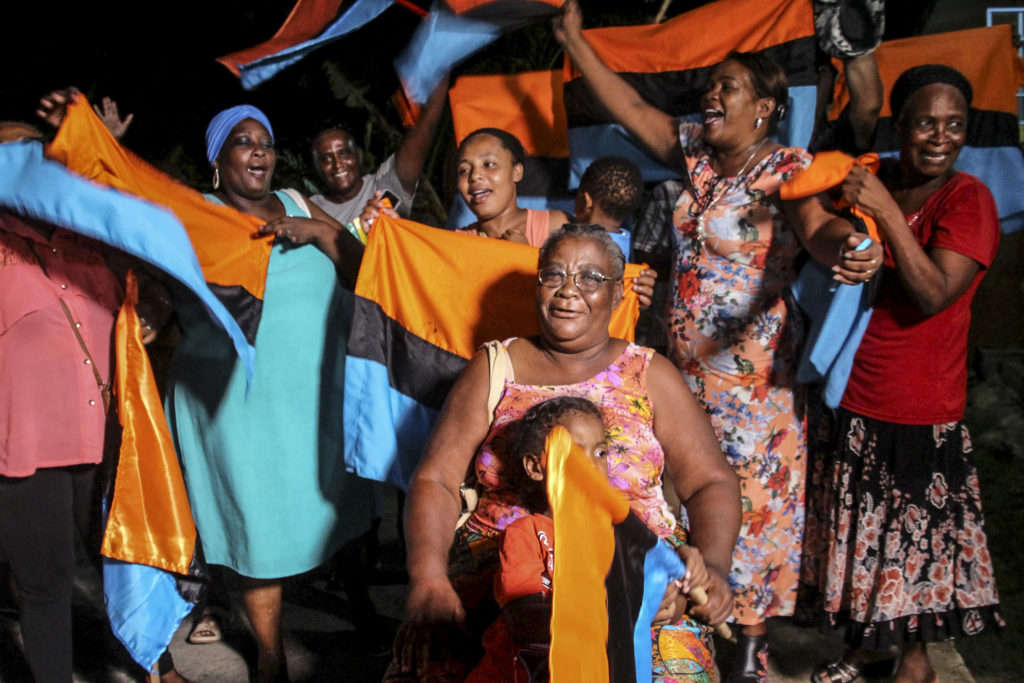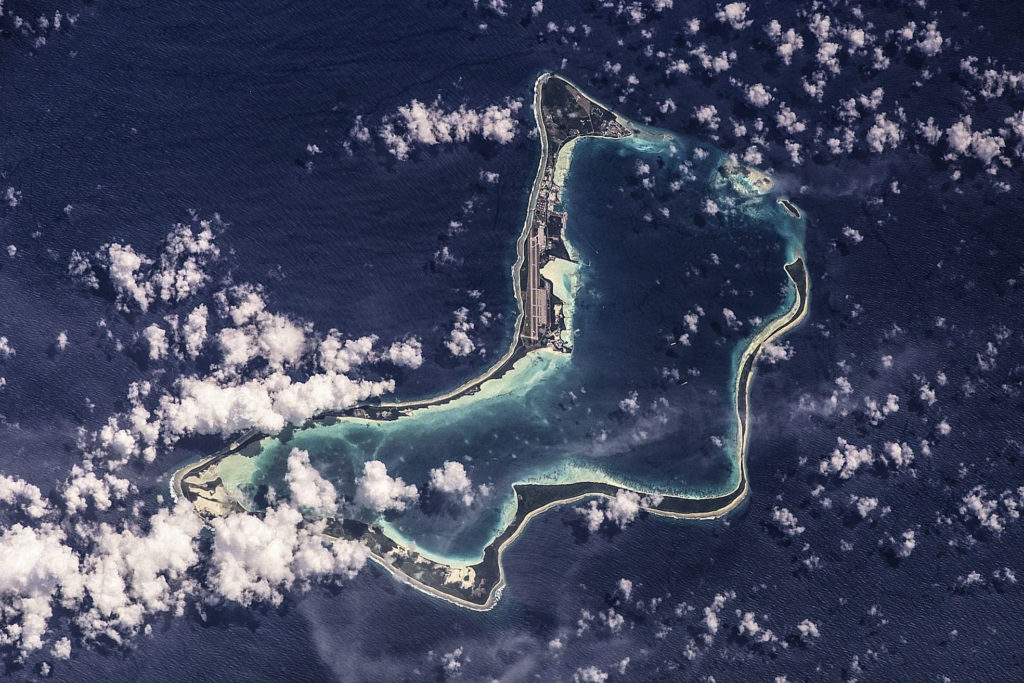Political footballs: Chagos take on Panjab in December. (AFP)
There’s a lonely paradise in the middle of the Indian Ocean. Sitting about 1 600km east of Mauritius, the Chagos Archipelago offers similarly idyllic surroundings. Immaculate white sand leads to an endless expanse of still, translucent blue water. Dense tropical forests offer a natural bounty in the other direction.
To a grateful few, the Chagos Islands were once home. The hopeful among them dream that it may be once again. But many have given up hope that the British will ever cede control of a territory they illegitimately annexed, cleared of the local population and gave the largest island — Diego Garcia — to the United States to use as one of its biggest military bases in the Southern Hemisphere.
With little recourse available to them, the disenfranchised have now turned to football to share the plight of a fragmented community.
The Chagos Islands Football Association operates out of West Sussex, England, where much of the Chagossian diaspora resides. With little access to funds, the team relies on volunteers to help out and the public to contribute where possible. Yet despite those limits, it has qualified for the 2020 Confederation of Independent Football Associations (ConIFA) World Football Cup — the biennial premier event organised for nations or peoples not recognised by Fifa.
The coach who will take them to Skopje, the capital of North Macedonia and host city of the competition, is Jimmy Ferrar. A well-travelled mostly non-league manager, Ferrar first approached the job like any other when he agreed to sign up last year.
“I’ll be honest, when I joined the team I was very much of the opinion that I’ll do the football and [the chairperson] can do the politics,” he says. “But with the football team does come a massive political story. If you watch the John Pilger film, you see how heartbreaking it actually is. A lot of people have watched that recently.
“Even up to a month or two after I joined I hadn’t watched a lot of the documentaries. Now that I have watched them I realise how heartbreaking it really is. Especially when you get to know the boys on a personal level as well, it makes it even more heartbreaking — the obstacles they face and what they have to get through to live in this country.”
It’s not hard to imagine how someone could be swayed, and horrified, by a documentary. In Pilger’s 2004 Stealing a Nation, the Australian filmmaker compiles extensive secret documents and testimony to paint a picture of how the United Kingdom imposed an independence condition on Mauritius that it could not lay claim to the Chagos Archipelago. How, after seizing control in 1968, it began to build a fantasy narrative that the 2 000-strong population on Diego Garcia, who had been there since the 18th century, were nothing more than a “few Tarzans or Men Fridays”, as one official put it. That they could be forced off the island by imposing supply blockades and gassing hundreds of their dogs as a warning.
 Chagossian families celebrate the news that the United Nations’ top court has told Britain to give up control of the Indian Ocean archipelago. (AFP)
Chagossian families celebrate the news that the United Nations’ top court has told Britain to give up control of the Indian Ocean archipelago. (AFP)
The powerful got their way, as they tend to do, and the Chagossians were herded into squalid neighbourhoods in the Seychelles, Mauritius and England. All locations far removed from their peaceful and largely unspoiled home. The US, meanwhile, got their base on Diego Garcia – a strategic position during the Cold War but one that remains highly valued to this day. Six B-52s were reportedly deployed there by the Pentagon earlier this month when tensions with Iran heightened, for instance.
Stories like these are commonplace among the ConIFA World Football Cup participants. Of those who take part — which includes Tibet, Western Sahara and Somaliland to give you an idea of the ethos of the competition — many have endured decades of displacement or civil war. Others, like Quebec or the County of Nice, hail from far more genteel environments, but view their right to select their identity to be as inalienable as that of anyone else. Some of
the nations represent smaller collectives, like the Chagos Islands, while a team like Panjab would claim to play for more than 100-million people.
“I think a lot of people are starting to learn about it,” Ferrar says. “Social media has grown it massively. A lot of people market it as the biggest international football tournament outside of Fifa. It’s well supported, the only thing that’s not so well done is the sponsorship side of things but that’s purely down to the political circumstances of some of the nations that are participating.”
ConIFA offers a vital competitive outlet in a globalised world that still has countless tears in its seams. Fifa is notoriously spineless when it comes to involving itself in geopolitical disputes. If anything it has been quite happy to look the other way when human rights abuses are committed, as long as it does not compromise its own bottom line. It would certainly never grant membership, barring major shifts, to many that will travel to North Macedonia in June.
Yet even with ConIFA’s apolitical approach, the legacy of this displacement will still haunt Ferrar’s side.
“It’s a sour one as well,” he says. “From our best team we’ve got a lot of our boys that won’t be able to travel. A lot of the boys, their mums are second generation and their grandparents are natives. There’s a rule that only natives and second generation can apply for a British passport. So a lot of our boys have got to apply for naturalisation. For the World Cup, even though we’re confident, we won’t even be able to take our best team because of their passport issue. If they leave the country they won’t be allowed back in.”
 The British handed over the largest Chagos atoll, Diego Garcia, to the United States military.
The British handed over the largest Chagos atoll, Diego Garcia, to the United States military.
Despite the UK retaining control of the Chagos Islands, its descendents are being denied basic British rights and are essentially born into refugee status.
It’s a situation that’s now, thanks to a sustained Chagossian legal battle, been widely recognised as untenable. Last May, the United Nations endorsed the opinion of the International Court of Justice, its judicial arm, that the UK’s control of the archipelago constitutes an illegal occupation. It demanded the islands be given to Mauritius and set a deadline of November 22, one the UK has flouted.
With suggestions arising that the UK could lose its permanent position on the UN Security Council because of its defiance, the future of this picturesque part of the world and its people is as unclear as it’s ever been. The human rights lawyers have done their utmost in the global courts. Now Chagos Islands FC will do what it can on the pitch.